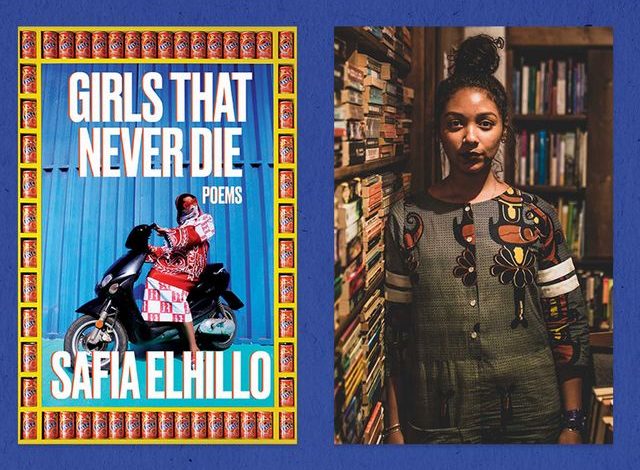Poet Safia Elhillo Writes (Girls That Never Die)

Agencies – Sudan Events
In her latest collection, Elhillo is no longer writing “well-behaved poems.”
Safia Elhillo’s latest poetry collection, Girls That Never Die, is an invitation to freedom to herself and other women. Elhillo, a decorated poet, is the author of The January Children as well as a National Book Award finalist for her novel in verse (Home Is Not a Country) . Always examining home, generational trauma, and family history, Elhillo digs even deeper in her latest collection.
In (Girls That Never Die), imagines a new world — one where women have autonomy, where they aren’t shamed for who or what they are, where they are protected. Using magical realism while also drawing from her own life and family, she explores Muslim girlhood and shame, desire and violence, and the dangers of being a woman.
This collection investigates the pressures society — and Sudanese culture — puts on women, and what it feels like to succumb to that pressure. But this collection also dreams up a world where women rise above these expectations and limitations. Shondaland spoke with Elhillo about myths, fear, and policing femme bodies.
Every single poem is stellar.”—Roxane Gay, author of Difficult Women and Hunger In Girls That Never Die,by Safia Elhillo award-winning poet Safia Elhillo reinvents the epic to explore Muslim girlhood and shame, the dangers of being a woman, and the myriad violences enacted and imagined against women’s bodies. Drawing from her own life and family histories, as well as cultural myths and news stories about honor killings and genital mutilation, she interlaces the everyday traumas of growing up a girl under patriarchy with magical realist imaginings of rebellion, autonomy, and power.
Elhillo writes a new world: women escape their stonings by birds that carry the rocks away; slain girls grow into two, like the hydra of lore, sprouting too numerous to ever be eradicated; circles of women are deemed holy, protected. Ultimately, Girls That Never Die is about wrestling ourselves from the threats of violence that constrain our lives, and instead looking to freedom and questioning: [what if i will not die] [what will govern me then. I will.



